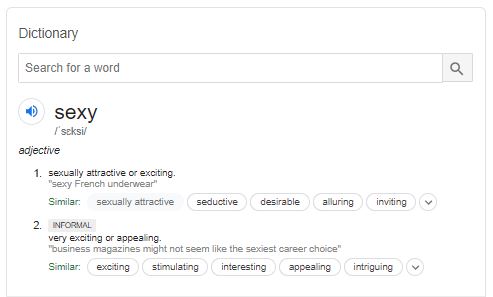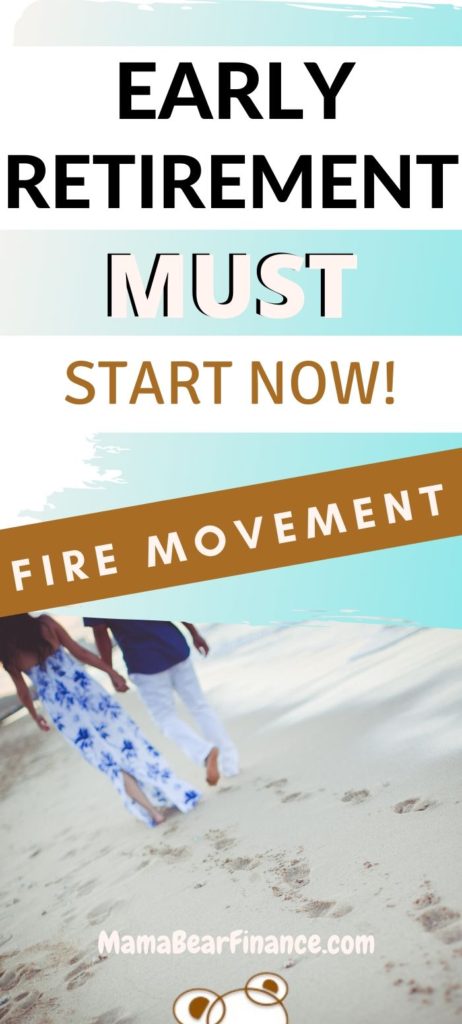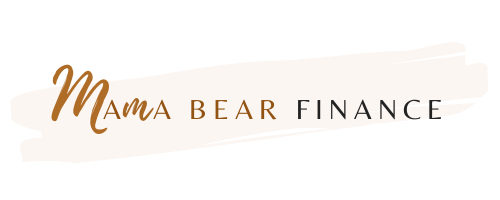Short answer: Why yes, yes it can.
I remember the first time I had a conversation about retirement. It was brief and I was 21.
I sat in an HR office about to sign papers for my first paid internship. “$16/hour, score!” was all I could think about. That was 2007.
The HR quickly went through all the paperwork that I had to sign before starting my new “swanky” job. “Here’s your payroll form, fill it out and sign here. Here’s our company policy, read it and sign here. Here’s your retirement, we offer matching, sign here…”
“Retirement, heh!” I thought to myself with a silent smile, “That’s like decades away. Let’s talk about when I’ll get paid!”
I cruised through my entire twenties thinking like this. Although I participated in company matching (well, of course, it’s dollar for dollar), I never stopped to ponder about IRA and Roth IRA or the like.
It wasn’t until I reached my thirties did I up my game and thought more about this unuttered subject.
Maybe it’s the word ‘retirement’ that has such a snoozer ring to it. If it were called dreamcation, I think it’d be much sexier. But this post isn’t about the terminology, nor its sex appeal, it’s about the hidden gem that is in our inevitable future.

This post may contain affiliate links, which means I may receive a commission, at no extra cost to you, if you make a purchase through a link. Please see my full disclosure for further information.

A Lack of Education About Retirement
Few weeks ago, I read an article called, “What’s the Average 401(k) Balance by Age?” This feature talks about how much retirement savings people have categorized by different age group.
At the end the author concludes that Americans are “not measuring up” to the savings standard that would ensure a comfortable retirement. Certainly, the topic on retirement can be a snoozer at dinner table especially when you are decades away from reaching it.
But nevertheless, retirement is an important aspect in life as we reach the end of our career. When do we reach retirement, or better yet can we reach it sooner, is the main question. So, how can retirement become a more appealing topic so that more people would pay attention to it?
A shocking statistic within this article reveals that “two-thirds of workers believe they don’t know as much retirement as they should” and “20% of workers admits to not knowing how their retirement money is invested.”
I have to be honest that before reaching my thirties, I didn’t pay much attention to retirement either. Just the word is enough to snooze me out. But I was young and carefree. I didn’t even know what I’ll have for breakfast next let alone what my retirement will be like.
But regardless of my ignorance, I still invested in 401(k) to the extent of getting my full employer match which was 6% of my salary. However, I had no clue how my retirement money was invested, and quite frankly, I didn’t care all that much.
But I should care, and this is something I realize soon after reaching 30 years old when I saw how fickle companies can be when it comes to laying off their workforce. Seeing my (more experienced) coworkers get fired had shaken me to take my future more seriously because my job is not guaranteed indefinitely.
Unfortunately, there’s not much discussion surrounding retirement unless one is about to reach retirement age. So, for younger folks, we continue to stay oblivious as education is not prevalent.
Now that I’m a bit older and a tad bit wiser, I gained more knowledge about this topic and I intend to share it so that more people can enjoy the fruit of their labor.

What is Retirement vs. Ideal Retirement
It’s much easier to define retirement than an ideal retirement since the latter is subjective per one’s desire level of lifestyle. A traditional retirement age in the U.S. is 65 years of age or older. An ideal retirement, however, can include early retirement. Let’s take a look at both in comparison.
Retirement refers to the time of life when you choose to leave the workforce behind indefinitely. This means that by the time you reached this milestone, you should be able to sustain your living standards without the need of a paycheck.
Separately, an ideal retirement depends on various factors including:
- your desired age to call it quits forever
- your desired lifestyle
- your capacity to retire at your desired age matching your desired lifestyle

Therefore, an ideal retirement is much more flexible and could be more appealing than a traditional retirement. But how are people faring in their quest for retirement in general?

Retirement Balances by Generation
According to Fidelity Investments, the average employee contributes 8.8% to their 401(k) – a form of defined-contribution retirement plan offered by employers.
Here is the breakdown of average and median 401(k) balances by age group:
1. Age 20 – 29
The average retirement balance for twentysomethings stands at $11,800 with a median balance of $4,300. The contribution rate as a percentage of income is 7%.
There’s no surprise there since most people in their twenties have just started out their career so retirement is not really something on top of their mind.
This is not to mention that most twentysomethings just finished school and living life in their own terms so they will incur a higher percentage cost in proportion to their earnings.
2. Age 30 – 39
The average retirement balance for thirtysomethings stands at $42,400 with a median balance of $16,500. The contribution rate as a percentage of income is 7.8%.
As both the average and median balances increase in this age group, the gap between the two also widens.
It’s a much more telling sign to look at the median than the average since the average can be distorted by the super savers who made up a minority of the total population.
At a median retirement balance of $16,500, the average millennials are still not taking their retirement too seriously. The thirties is a time where most careers pick up especially at mid-thirties when they’ve racked up ten years of experience. Therefore, the fact that the gap between median and average retirement balance widens shows that most thirtysomethings are not socking up enough.
3. Age 40 – 49
The average retirement balance for fortysomethings stands at $102,700 with a median balance of $36,000. The contribution rate as a percentage of income is 8.5%.
Again, the median balance is a more telling sign about the state of people’s retirement. Here it shows that Gen Xers have more than doubled their balances from the previous decade. But since they started off at a low balance, at this rate, it’s hard to believe that they will save enough by retirement age since the average annual expenditures for Americans is $61,224 (Source: U.S. Department of Labor).
4. Age 50 – 59
The average retirement balance for fiftysomethings stands at $174,100 with a median balance of $60,900. The contribution rate as a percentage of income is 10.1%.
Although the contribution rate has jumped 1.6% from the previous decade, the median retirement balance is still lagging behind the average. This is alarming because with just one more decade away from retirement, the median balance ($60,900) is not even enough to cover a year’s expenditure ($61,224). Yikes!
5. Age 60 – 69
The average retirement balance for sixtysomethings stands at $195,500 with a median balance of $62,000. The contribution rate as a percentage of income is 11.2%.
The contribution rate jumped slightly by 1.1% from the previous decade, while the average retirement balance jumped by 12% and the median retirement balance jumped by only 2%. The small jump in the median balance could be attributed to the fact that most sixtysomethings are already out of the workforce, either voluntarily or involuntarily, by this time.
This begs the question, is an average balance of less than $200k or a median balance of $60k enough to retire comfortably? I’m leaning more towards a nooooo.

How Can Retirement Be “Sexy”?

Fortunately, for those in their twenties and thirties, retirement can be very exciting and appealing. This is the time where you still have decades to pile up your saving/investment/brokerage accounts and let them grow compounded annually. Can this be achieved for those who started late in the game? Maybe, but it’ll most likely take a whole lot of grit and a dash of luck.
Let’s take a look at how sexy retirement can be for each of the age groups:
1. Age 20 – 29
In your twenties, retirement can be very appealing if you aim to retire super early. Case in point: Currently, there’s a FIRE (financial independence; retire early) movement that’s spreading which shows many people in their thirties who retired, well, in their thirties.
These “retirees” are now living their dreams through traveling the world, following their passion, building their blog into a business, or just having a great time watching their kids grow. They are the ones who inspired me to start this blog as well!
They may not be living a traditional retirement lifestyle, but instead a dreamcation, forever.
In order to be qualified as super early retirees, they must no longer rely on working to sustain their living standards. Instead, they have successfully built a passive income stream that covers all of their expenses and more.
But to do this is not without sacrifice, and this sacrifice begins in their twenties. In order to achieve financial independence in their thirties, many of these super early retirees usually lived frugally in their twenties and have a headstrong determination to save more than 50% of their earnings.
Although the process may not sound very sexy, the end goal could be very appealing if you have something to retire towards.
2. Age 30 – 39
If you’re not yet ready to retire at this age, don’t fret, you still got time.
The great thing about thinking about retirement at this age is that you should have hopefully spent your twenties having fun. Whatever that fun may be is up to the individual, but I’d suspect that in your twenties, you’re more focused on enjoyment rather than fulfillment. This could include going clubbing, bar-hopping, shopping, more shopping, and generally throwing money out like rice.
This is okay, and in my opinion healthy, because you’ve experienced “living it up to the fullest” (i.e. no FOMO) while being young and clueless.
And hopefully, you’ll come to the realization that this type of lifestyle is futile and that it’s time to focus on the fulfillment aspect. If so, then reaching early retirement can be a very fulfilling, sexy goal.
In your thirties, you have already built up about ten years of experience. Your salary has slowly (or quickly) risen, and you might even have started a family so you’ll tend to pay more attention to your finances.
At this age group, you can target to retire in your 40s by socking up 50% or more of your income (a general rule of thumb in the FIRE community). You can achieve this by living frugally and not let lifestyle inflation to kick in (or kick your butt) as you gain more income.
You can also start a side income where you diversify your income streams. By doing so, you’ll ensure that you can capitalize on your earning potential and compound interest so that your nest egg can grow exponentially.
3. Age 40 – 49
If you come to the realization that your job is shaky and you’re being out-competed by a younger workforce, you may start to think about how you can sustain your living standard the day you lose your job.
(Unless, that is, you’re financially secured and are much more well off than your peers in the statistics above.)
Truth be told, this is what I’ll anticipate once I reach this age group. I didn’t do this out of sheer negativity about my future. Nay, I do this so that I can make my future better. In my thirties, I have witnessed many of my older coworkers get stressed out about losing their job as well as their prospect of finding a new one.
Unless they’ve reached a high position of power, their jobs are constantly being threatened by a younger workforce who can do the same job for less. Unfortunately, sometimes experience doesn’t outweigh the prospect of lower overhead cost for companies in their quest to drive higher profitability.
Unlike in the olden days where employees can keep their job for life and receive a gold watch at the end (so I’ve been told), many jobs have been phased out of a defined pension plan. This means that not only do employers have less (or a lack of) willingness to incentivize loyal workers, they also tend to favor a younger workforce with lower pay and more up-to-speed knowledge on today’s technologies.
So, retirement is definitely becoming a more urgent topic for those in their forties. But wait, it could still be sexy as it is urgent.
In your forties, you may have already climbed the corporate ladder and your earning potential is at its peak. This means that you have more room to increase your savings rate. Is this easy? Perhaps not. Is it doable? I think so, do you?
On top of that, your years of experience could also help you become a consultant or start your own business. That’s assuming you are willing to take the risk to achieve higher rewards.
By taking a look at your current situation and evaluate how you can improve your financial situation, you can still change the course and steer towards an ideal retirement or dreamcation.
4. Age 50 – 59
At this age group, retirement is more of an eventuality and you may already be imagining what it would be like the day you say goodbye to your job permanently. However, unless you already have a sizeable nest egg, an early retirement might mean retiring at the standard age of 62 instead of an ultra early one.
If your retirement balance resembles that of the average or median above, $174,100 and $60,900 respectively, then I would highly recommend to start using a budget to look for ways of optimizing your savings rate.
It may require coming up with a drastic plan to live more frugally or find ways to diversify your income streams. Although this is a much easier thing said than done, I believe it’s still better than waiting till things get worse.
As with many aspects in life, it’s much easier to take a preventative measure than to formulate a corrective plan. Therefore, it’s no doubt that the earlier one thinks about retirement, the more appealing retirement can be.

Over To You
If you’ve just landed on this blog or you’re already an avid reader (aw shucks, really?), you must have thought about early retirement or financial independence. And because you take an interest in this topic, you’re more likely to steer the course towards a healthy savings rate and spending habits.
But if you’re just at the starting point, no worries, we’ll get there together. By having more discussion about retirement or dreamcation (those in favor of this term say, ‘aye’), we’ll find new ways to achieve it. That’s exactly what this blog is set out to do: finding those ways to become financially free.
Stay tune for more ideas on how to earn more, save more, and enjoy life more! (Don’t forget to SHARE, comment and subscribe.)
Related: 5 Ways to Increase Your Savings Quickly

What’s your take on retirement? Do you have a goal of when you want to retire? Do you agree that the twenties and thirties are the optimal age group to start planning for retirement?
PIN today, save for tomorrow!


I was fortunate to work in a field with a great built in retirement plan (school district). And I stayed in the career for 30 years to be able to get a pretty nice retirement check every month. I was able to retire at 55 and I am 2 years retired. LOVE it!!
Thank you from the bottom of my heart for everything
You’re welcome 🙂
I’m approaching my 40’s and I have been contributing to my retirement plan (I’m in Canada). However, with having a family I haven’t been focusing on retirement. Those kids sure cost a lot! Now that my kids are getting older (youngest at 3), I feel that it’s time to start focusing on a retirement plan. I have a goal and (dream!) to retire from my job before I’m 50 … not sure how I will do it but I’m sure going to try! Thank you for an enlightening article, I hope many will start to plan for retirement as well.
I’m sure you can do it! As long as you set a target, you’ll find a way to make it happen. I’m glad you enjoyed this article. Thanks for the feedback!
“Can we reach it sooner?” – Great question!
Thanks!! I’m glad you agree 😉
Thank you so much for writing this! I’m in my early 20s and when I landed my first entry-level job, I did not think about saving for retirement either, but now I know when I receive my next job that I will. This was very informative and I like how you broke it down in sections and in parts of ages to make it understandable for people of their age. I am definitely taking it into consideration for my next move. As someone who frequently likes to adventure and pursue their passion projects, the word ‘retirement’ or ‘early retirement’ is definitely sexy to me. 😉
Awesome! So glad this article helps you 🙂 Your kind message really makes my day!
Since you’re an early starter, you will surely reach a sizeable nest egg. Keep it up and you will be able to pursue your passion projects in no time!
I still have a while to go before retirement but I am always conscious of what needs to be done to retire comfortably. I think and plan ahead for the future because it’s so important. Very insightful article.
What is your age group right now, just out of curiosity? I’m so glad you think ahead! Keep it up 🙂
Wow! You have done your research. You had me laughing at the beginning of this article. It is hard to think about retirement when you’re just starting out in the workforce but things get real as you get older. I love how you break it down and help people realize this is something they need to focus on. My husband has always had this at the forefront of his thinking so we are now investing in real estate to build wealth to add to what we already have in our 401K accounts.
Thanks! Yes things gets real in the workforce, I like that! Totally agree. You and your husband are doing a fantastic job! If more people have your husband’s mindset then I think we would have a better community where less people will suffer from money issues.
I like how you broke retirement down by age to help people understand how they measure up to the average, and what they should be focusing on. It’s always good to have a reminder to check your retirement savings and portfolio. Luckily, I took a great class in college that encouraged me to start saving for retirement early.
Thanks for your kind feedback 🙂 That’s great to hear about that class you took! I majored in finance but retirement was barely a topic.. either that or I didn’t pay attention in class upon hearing the word, “retirement.” Guilty!